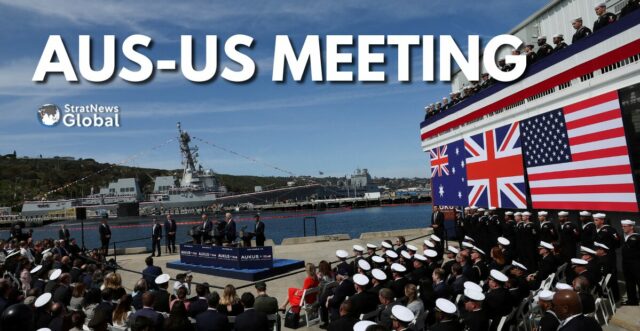This week, Australia and the US will focus on China, climate change, strategic competition in the Pacific, and the AUKUS nuclear submarine project. These topics are the primary agenda for talks between Australian and US defence and foreign ministers.
On Monday, Foreign Minister Penny Wong and Defence Minister Richard Marles met in Washington. This meeting took place a day before the annual AUSMIN talks in Annapolis, Maryland. Marles highlighted the growing role of the US Marine rotational force in northern Australia and the expanding defence industry cooperation between the two countries.
“We’re seeing America’s force posture in Australia grow significantly. AUKUS is part of that, but it’s not the only part,” Marles said during discussions with US Defense Secretary Lloyd Austin.
The AUKUS Programme And Bipartisan Support
As part of the AUKUS programme, the US will sell three nuclear-powered submarines to Australia in the next decade. Despite an upcoming US election, Australia’s Wong noted that there is bipartisan political support in the US for the programme.
US Ambassador to Australia, Caroline Kennedy, mentioned on ABC Television that China and climate change would be key discussion points. These issues are crucial for the Pacific Islands, where the US and Australia are competing with China for security ties. “China is an important trading partner and competitor for both of us,” Kennedy stated. “We are also discussing joint efforts to fight climate change and assist the Pacific Islands in building critical infrastructure.”
Environmental Cooperation and Technological Advancements
Australia plans to spend A$200 million ($130.02 million) to upgrade ground station facilities in its remote central desert. These facilities will process data from NASA’s Landsat Next satellite. NASA’s Landsat Next is an earth observation programme set to provide early warnings on fire outbreaks and ice melting. The programme is scheduled to begin in 2030.
US Secretary of State Antony Blinken stated that the satellite data would also be utilised for resource exploration in Australia. This collaboration aims to develop a supply chain for critical minerals. The US and its allies seek to reduce China’s market dominance of rare earths and critical minerals, which are essential for electric vehicles and defence technology.
(With Inputs from Reuters)
Research Associate at StratNewsGlobal, A keen observer of #China and Foreign Affairs. Writer, Weibo Trends, Analyst.
Twitter: @resham_sng





